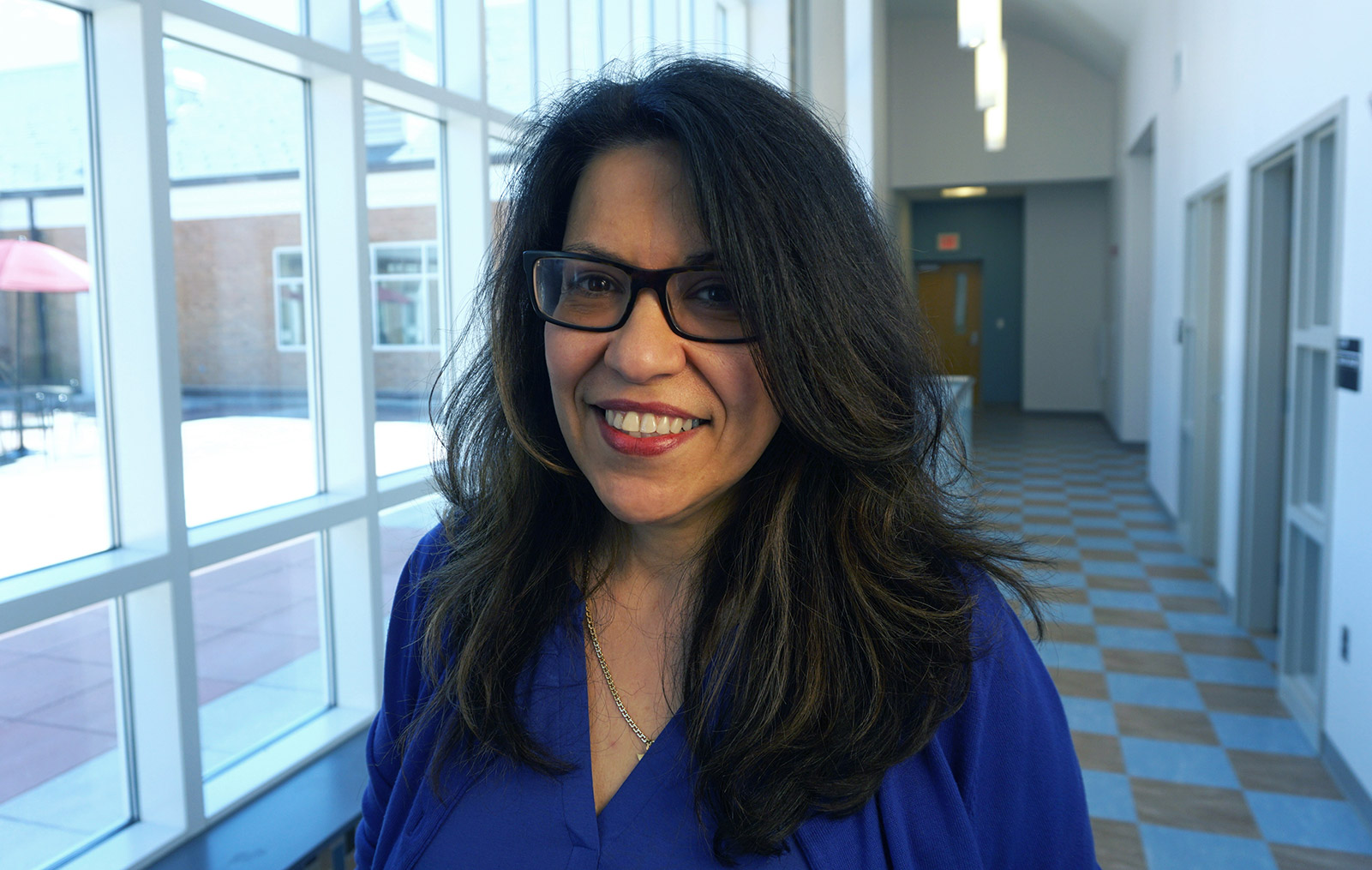Nancy Raquel Mirabal

Associate Professor, American Studies
Affiliate Faculty, Latin American and Caribbean Studies Center
nmirabal@umd.edu
3329 Tawes Hall
Get Directions
Research Expertise
African American/African Diaspora
Africology, Afrocentricity, and Pan-Africanism in LIS
Immigration
Latinx Studies
Space and Place
Nancy Raquel Mirabal is on the Advisory Board for the Center for Global Migration Studies and an Affiliate faculty with the Harriet Tubman Department of Women, Gender, Sexuality Studies, Consortium on Race, Gender and Ethnicity, and the Center for Latin American Studies. She has published widely in the fields of Afro-diasporic and Latinx Studies. Her most recent publication, Suspect Freedoms: The Racial and Sexual Politics of Cubanidad in New York, 1823-1957 (New York University Press, 2017), is the first book to explore the history of Cuban racial and sexual politics in New York during the nineteenth and twentieth centuries. Chronicling more than a hundred years of Cuban exile, migration, and diasporic history, Suspect Freedoms situates this pivotal era within larger theoretical discussions of potential, future, visibility, and belonging; demonstrating how these transformations complicated meanings of territoriality, gender, race, power, and labor.
In addition, Mirabal is a co-editor of Keywords in Latina/o Studies with Lawrence LaFountain Stokes and Deborah Vargas (New York University Press, forthcoming); and first editor of Technofuturos: Critical Interventions in Latina/o Studies (Rowman and Littlefield, 2007). Technofuturos was honored by the Latino Studies Section of LASA for Cutting Edge Work in Latino Studies, 2008.
Mirabal has been awarded grants and fellowships, including the Scholar in Residence Fellowship at The Schomburg Center for Research in Black Culture, New York Public Library 2012-2013;The University Chancellor Postdoctoral Fellowship for Academic Diversity at the University of California, Berkeley, Department of Ethnic Studies, 2001-2003; the International Migration Postdoctoral Fellowship, Social Science Research Council (SSRC), 2002-2003; the Distinguished Lecturer for the Organization of American Historians (OAH), 2005-2010; and the National Endowment for Humanities, DC Community Heritage Project Grant, 2020.
A trained oral historian, Mirabal is currently conducting research and writing on the politics of dissonant visibilities, uneasy archives, and Latina/o spatial temporalities. She has published “Geographies of Displacement: Latina/os, Oral History and the Politics of Gentrification in San Francisco’s Mission District,” (Journal of Public History, 2009), and “Not In their Plans: Gentrification, Latina/os and the Practice of Community Oral History,” (Oral History and Communities of Color, 2013).
Nancy Raquel Mirabal currently serves on the board for Teaching for Change in Washington DC.
Research Areas
- U.S. History
- U.S. Latina/o Studies
- Afrodiasporic Studies
- Archive and Knowledge Production
- Immigration
- Space, Place, and Gentrification
Education
- Ph.D. Department of History, (University of Michigan, Ann Arbor)
- B.A. Department of History, (University of California, Berkeley)
Select Publications
- Suspect Freedoms: The Racial and Sexual Politics of Cubanidad in New York City, 1823-1957 (New York: New York University Press, 2017).
- Keywords in Latino Studies. (New York: New York University Press, 2017). Co-editor with Deborah Vargas, Associate Professor, Ethnic Studies, U.C. Riverside, and Larry LaFountain Stokes, Associate Professor, American Culture, University of Michigan, Ann Arbor.
- “Rethinking the Archive,” Afro-Latinos in Movement: Critical Approaches to Blackness and Transnationalism in the Americas. Eds. Petra Rivera-Rideau, Tianna Paschel and Jennifer Jones. (Palgrave Press, 2016).
- “Not in their Plans: Gentrification, Latina/os, and the Practice of Community Oral Histories.” Oral Histories and Communities of Color. Eds. Teresa Barnett and Chon Noriega (Institute for Oral History, University of California, Los Angeles, 2013).
- “Melba Alvarado, El Club Cubano Inter-Americano, and the Creation of Afro Cubanidades in New York City.” The Afro-Latina/o Reader. Eds.Miriam Jiménez Román and Juan Flores (Durham: Duke University Press, 2010)
- “Displaced Geographies: Latina/os, Oral History, and the Politics of Gentrification in San Francisco’s Mission District.” The Public Historian, (Spring 2009).
- “Dyasporic Appetites and Longings: An Interview with Edwidge Danticat.” Callaloo: A Journal of African Diaspora Arts and Letters, (2007).
- “Scripting Race, Finding Place: African-Americans, Afro-Cubans and the DiasporicImaginary in the United States.” Neither Friends Nor Enemies: Latinos, Blacks, Afro-Latinos. Eds. Anani Dzidzienyo and Suzanne Oboler (Palgrave Press, 2005).
- “’Ser de Aquí’: Beyond the Cuban Exile Model.” Latino Studies Journal, (November 2003).
- “‘No Country, but the One We Must Fight For’: The Emergence of an ‘Antillean’ Nation and Community in New York City, 1860-1901.” Mambo Montage: The Latinization of New York. Eds. Agustin Láo and Arlene Dávila (Columbia University Press, 2001).
Publications
Suspect Freedoms: The Racial and Sexual Politics of Cubanidad in New York, 1823-1957
Study explores Cuban racial and sexual politics in New York during the nineteenth and twentieth centuries. Examines Afro-Cuban activism, politics, intellectual and cultural production.
Author/Lead: Nancy Raquel Mirabal"Suspect Freedoms" chronicles more than a hundred years of Cuban diasporic history in New York. One of the few studies to examine the early history of Afro-Cuban migration and politics, it employs a rich cache of primary sources, archival documents, literary texts, club records, newspapers, photographs, and oral histories to produce what Michel Rolph Trouillot calls an "unthinkable history."

